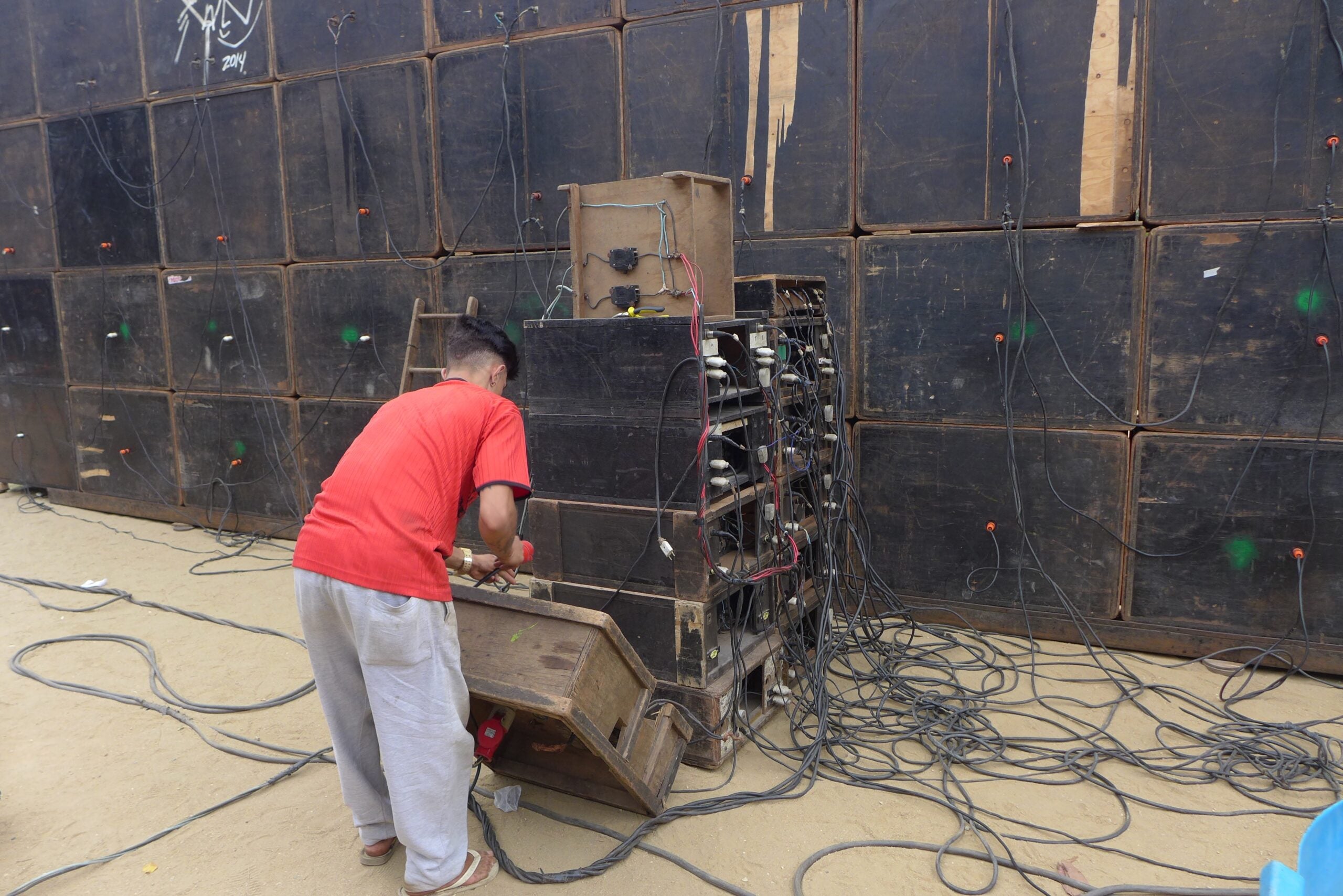Lecture by Alexandra Lippman
Visiting Assistant Professor of Anthropology, Pomona College
In July 2024, President Luis Ignacio “Lula” da Silva signed the “National Day of Funk” into law. Brazil’s institutionalization of funk carioca (funk from Rio de Janeiro)—an Afrodiasporic electronic dance music with roots in American funk, soul, and hip-hop—obscures the genre’s contested history. During bailes da comunidade (community dances), sound systems amplify funk to produce sonic sovereignty for favelas. While the state historically has abandoned, demolished, and excluded favelas from official maps of Rio, bailes funk carve out space within these communities. Amplification lays claim to a monopoly on violence, names the favela, and exerts an affective power among subjects through the sublime power of sound. In the 2010s when police “pacified” dozens of favelas forcibly integrating favelas into the state, they immediately silenced all bailes and jailed prominent MCs. Silencing funk has both produced and denied antiblackness. Police and media blamed funk for igniting dangerous passions among black youth, this rubric handily reproduces an expedient racism while simultaneously denying antiblackness by attributing violent behavior to the baile funk rather than to the racialized identities of its subjects. By carefully attending to the techniques for managing funk, I show how controlling public sound—which I understand to include public affect and the senses—is central to sovereignty, citizenship, and the production of difference. Furthermore, the battle to control funk – from the police silencing bailes in a pacified communities to laws declaring it ‘culture’—exposes the multiple, contradictory forms of power that lie at the heart of Brazil’s democracy.
Alexandra Lippman is a Visiting Assistant Professor of Anthropology at Pomona College. Her research interests include popular music, sound studies, STS, anthropology of media, and Latin America. Her primary research explores how music and sound become political projects as alternative intellectual property, performance and technology are contested. Her book, Funk Power: Citizenship, Race, and Sonic Sovereignty in Rio de Janeiro, is forthcoming. She is committed to public scholarship through multimodal ethnography. She founded the Sound Ethnography Project, co-runs a record label, Discos Rolas, and hosts a monthly radio show, “Sound Study,” on Dublab. Her work has been covered by The New York Times, The Wire, and The FADER, among others.
Part of the Nazir Ali Jairazbhoy Colloquium Series, this event is sponsored by The UCLA Herb Alpert School of Music Department of Ethnomusicology
